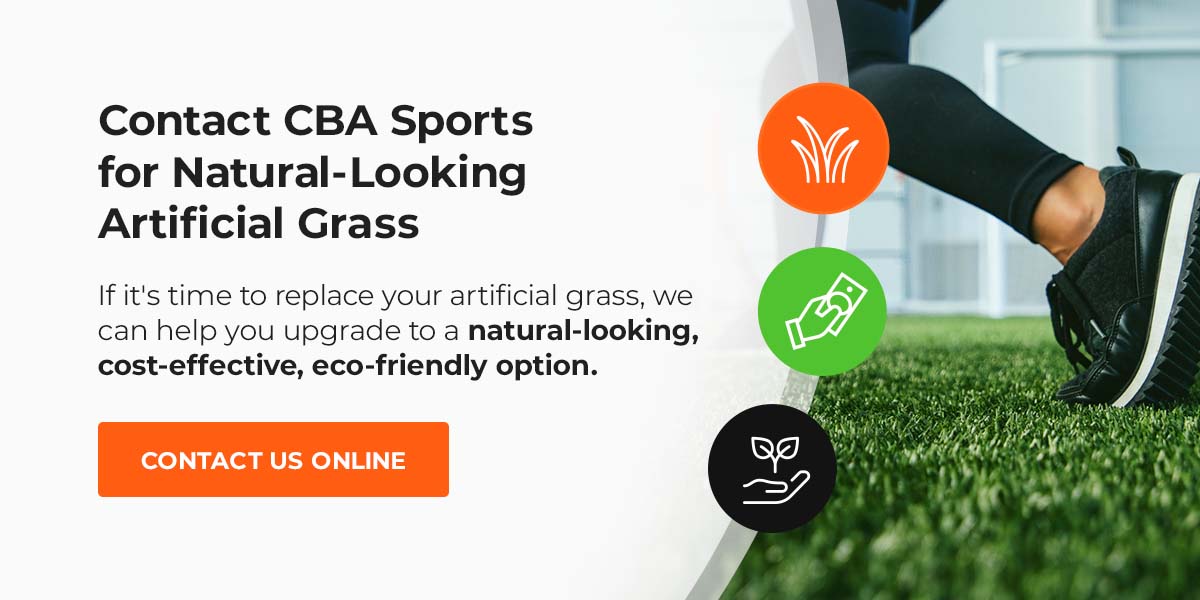Artificial grass is a popular, low-maintenance landscaping choice, but what happens when you’re ready to replace it? Is artificial turf recyclable?
Most often, artificial grass can be recycled, but the process isn’t always straightforward. While there are some considerations to make before recycling synthetic turf, doing so is important if you want to reduce waste and support sustainability.
Table of Contents
Is Artificial Grass Recyclable?
Most synthetic turf is made from a mix of plastics like polyurethane, polyethylene and polypropylene, which can technically be recycled. However, the challenge lies in separating these materials and removing infill, like sand or rubber, which makes the process more complex. In recent years, recycling methods for artificial grass have improved, and some companies specialize in repurposing them for new turf or other plastic products.
Recycling artificial grass involves several steps:
- Collection: The old turf is removed and taken to a recycling facility.
- Material separation: The grass is processed to separate the plastic fibers from the infill materials, like sand or rubber — you cannot recycle the infill with the plastics.
- Plastic processing: The separated plastic fibers are cleaned, shredded into smaller pieces and melted down into pellets for manufacturing new plastic products.
- Repurposing infill: The infill materials are cleaned and reused in new turf installations or other applications.
How to Recycle Artificial Grass
If you want to recycle your artificial grass, here are some steps and options to consider:
- Check with local recycling centers: Contact your nearest facility to see if they accept artificial grass.
- Contact the manufacturer: Many companies offer recycling programs or work with turf recycling specialists.
- Look for specialized turf recycling services: Look for a company that separates and processes artificial grass for reuse in new products.
- Repurpose the grass: Consider reusing your artificial turf to line pathways, cover outdoor furniture or enhance DIY projects.
Why Should You Recycle Artificial Turf?
Many people choose artificial grass to reduce water use, avoid chemical fertilizers and create a low-maintenance, eco-friendly space. However, improperly disposing of it can add to waste in landfills, negating those environmental benefits. Recycling reduces landfill waste and helps conserve resources. It also ensures the entire life cycle of your artificial grass aligns with eco-friendly practices, minimizing your environmental impact.
Contact CBA Sports for Natural-Looking Artificial Grass
CBA Sports has been helping home and business owners in Atlanta and beyond create attractive, low-maintenance landscapes for decades. If it’s time to replace your artificial grass, we can help you upgrade to a natural-looking, cost-effective, eco-friendly option. Whether you want to refresh your outdoor space or start a new project, we’re here to simplify the process. Call us at 770-797-9990 today or contact us online, and one of our turf landscapers will get in touch.

